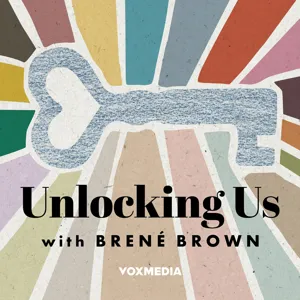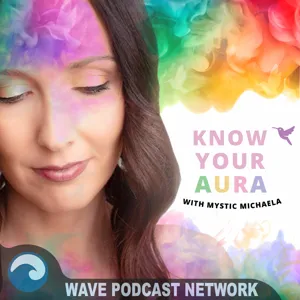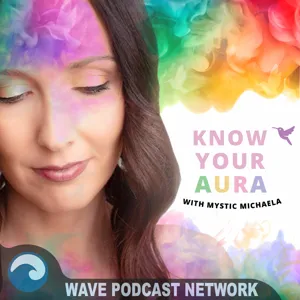Podcast Summary
Healing ourselves to heal the world: Addressing individual and societal healing is crucial for creating equality and justice. Innovative ideas challenge the status quo to transform schools and communities.
Learning from this conversation between Brené Brown and Sean Ginwright is that healing the world requires healing ourselves. Sean's new book, "The Four Pivots," proposes bold solutions to this issue, challenging the status quo with his innovative ideas. Sean, a leading researcher on youth development and activism, emphasizes the importance of addressing individual and societal healing to create equality and justice. The conversation touches on the constraints poverty places on urban communities and the power of healing to transform schools and communities. This provocative and daring conversation encourages individuals to speak their truths, even if it's uncomfortable, to move towards a higher place for both ourselves and society.
Growing up in a working-poor neighborhood and attending an affluent high school shaped Dr. Jen Wright's perspective: Dr. Jen Wright's experiences led her to question why inclusive opportunities weren't accessible to all young people of color, fueling her passion to elevate conversations and create change.
Dr. Jen Wright's experiences growing up in a working-poor neighborhood and later attending a largely white, affluent high school shaped her perspective and fueled her passion for creating inclusive spaces for black and brown youth. She shares her story of moving across town to a new development as a child, facing racism for the first time, and experiencing a transformative leadership camp as the only black student. These experiences led her to question why such opportunities were not accessible to all young people of color, particularly during a time when crack cocaine was beginning to take hold in urban areas. Through her writing, Dr. Wright aims to elevate these conversations and create change for a broader audience.
Transformative classroom experience leads to dedication to helping 'bad' kids: Founding a camp for disadvantaged youth led to remarkable transformations, but the speaker recognized a disconnect between academic theories and real-life experiences, fueling their commitment to addressing racial disparities
Young people labeled as "bad" are often wounded and in need of a safe space to tell their stories. A transformative experience in a middle school classroom led the speaker to dedicate their life to working with young people, particularly black kids. They founded a camp at San Diego State, which provided a sanctuary for these students and led to remarkable transformations. However, the speaker's academic studies didn't always align with the realities they faced in the community. They recognized a disconnect between theories of adolescence and the significance of race and blackness, which they experienced as a combination of whiteness, class, and economic barriers. This realization fueled their commitment to critically examining and addressing these disparities.
Understanding and addressing internalized racism among black youth: Internalized racism causes deep wounds and shame among black young people, hindering personal growth and community engagement. Addressing these wounds through open dialogue and safe spaces is crucial for effective social change.
Internalized racism and the resulting deep shame and spiritual wounds among black young people are significant and profound issues that are often overlooked, especially in academic settings. These wounds, which can manifest as shame for having dark skin or anger towards absent fathers, can hinder personal growth and effective community engagement. The speaker's experience of transitioning from an ivory tower academic environment to working in community centers allowed her to gain a deeper understanding of these issues and ask questions that her peers couldn't. She emphasizes the importance of addressing these wounds through open dialogue and creating safe spaces for young people to deal with their grief and loss. Her work, which includes asking tough questions and promoting healing, is crucial for effective social change.
The importance of mirror work in transformative change: Mirror work is essential for effective social change as it allows us to heal from past harm, examine our biases, and show up in more powerful ways.
Transformative change requires both self-reflection (mirror work) and understanding the complexities of the world (lens work). While lens work is necessary to analyze and articulate the complexities of social issues, mirror work is the harder, yet essential part of the journey. Mirror work involves looking inward, reflecting on personal experiences, and healing from past harm and trauma. Without mirror work, those engaged in social change efforts may become toxic or unable to effectively address their own biases and unresolved issues. It's through mirror work that we can truthfully examine ourselves and show up in more powerful ways to bring about meaningful change.
Recognizing and valuing the humanity of all individuals: To create transformative relationships, acknowledge and embrace black humanity, be vulnerable, share stories, and build connections based on empathy and understanding.
Addressing the deep spiritual trauma caused by internalized racism requires more than just job opportunities and understanding the education system. Healing and transformative relationships are crucial. Transactional relationships, while necessary for societal function, don't go far enough. To create transformative relationships, organizations and individuals must first understand and acknowledge the humanity of those they work with. This includes being vulnerable, sharing stories, and building connections based on empathy and understanding. The quote from Tarana Burke, "I'm just not interested in any of your antiracism or diversity work if it does not see, acknowledge, and embrace black humanity," highlights the importance of recognizing and valuing the humanity of all individuals in the pursuit of healing and transformative relationships.
Embrace possibilities and imagination for transformative change: To effectively address systemic issues, it's essential to shift focus from solely problems to also embracing possibilities and imagination, especially for marginalized communities, to foster transformative movements
Meaningful progress towards understanding and addressing systemic issues requires a shift from solely focusing on problems to also embracing possibilities and imagination. For communities of color and marginalized groups, this shift can help restore the capacity to dream beyond oppression and suffering. This transformation doesn't negate the importance of problem-solving or resistance, but rather adds the essential components of dreaming and imagination to the arsenal. The lack of spaces for movement leaders to dream and imagine has been a significant hindrance, and it's crucial to create and nurture these spaces to foster transformative movements. As Nelson Mandela demonstrated in South Africa, the power of dreams and a vision for a better future can be a driving force for change.
Creating spaces for dreaming and imagination: Dreaming and imagination are vital for meaningful change, not just reducing harm. Prioritize spaces for dreaming and possibility to promote well-being and purpose in the pursuit of justice.
Dreaming and imagination are essential components of creating meaningful change. Mandela and other civil rights leaders didn't just focus on reducing harm, but also cast a vision of possibility. We cannot overlook the importance of creating spaces for dreaming and imagination in our pursuit of justice. This is not an ancillary act, but a necessary ingredient. Just as our ancestors dreamed of freedom and the capacity for Black people to contribute ideas to the world, we must do the same. We can see this in action through intentional spaces, like the weekend retreat for teachers that prioritized play and imagination. This type of space is crucial for our own well-being and for reminding us of the purpose of our work for justice. In essence, healing and possibility go hand in hand, and we must make intentional spaces for both in our lives.
Focusing on presence of desire for growth and change: Emphasizing desired outcomes over absences, using language to imagine desired world, addressing addiction to frenzy, committing to meaningful work, prioritizing rest, and challenging societal norms that value productivity over well-being.
Focusing on the presence of what we want in our lives, rather than the absence, is essential for personal growth and societal change. Whether it's writing down three things we desire on a magic napkin or striving for belonging, using language that cultivates the imagination of a desired world is crucial. Additionally, recognizing and addressing our addiction to frenzy and hustle is necessary for deeper forms of change. Slowing down, making commitments to meaningful work, and prioritizing rest are key components of the pivot from hustle to flow. Ultimately, we must challenge societal norms that value humans based on their productivity and strive for institutions and policies that support the well-being and rest of individuals.
Shifting from reactive to intentional living: Examine relationships, redefine goals, prioritize rest, and confront inner truths for deeper change and well-being. This approach benefits individuals and communities.
The path to deeper change and well-being involves shifting our mindset from a reactive, frenzied state to a more intentional, restorative approach. This includes examining our relationships, redefining our goals, and prioritizing rest. However, this journey can be challenging, especially for those who feel pressure to constantly perform or experience shame around self-care. The author suggests that these pivots, including moving from awareness to reflection, connection to transformation, vision from problem-solving to problem-creating, and presence from hustle to flow, are interconnected and require a willingness to confront our inner truths. Ultimately, this approach not only benefits the individual but also the community, as everyone's well-being is interconnected.
Transformative relationships and mirror work: A powerful duo for personal growth and societal healing: Transformative relationships provide the mirror for self-reflection and growth, while mirror work offers new perspectives. Both are essential for personal development and societal healing.
Transformative relationships and mirror work are deeply interconnected. Transformative relationships, which are those that allow us to see each other as human beings and share vulnerability, provide the mirror for our self-reflection and growth. Mirror work, mirror the transformative relationships we have, offering us feedback and allowing us to see ourselves and our lives in new ways. These elements cannot be easily separated, and both are equally important for personal growth and healing. Furthermore, unhealed wounds and traumas in our society can lead to divisiveness and the erosion of our democratic values. To restore democracy, we must invest in healing these wounds through transformative relationships and mirror work.
Embrace vulnerability and build connections through shared passions: Sharing simple joys and passions can help build deep human relationships and bring us real joy
Vulnerability, being raw and human, is a brave act despite the fear it brings. People might misunderstand us, but sharing our passions, like beer, sports, or favorite shows and movies, can help build connections. Shawshank Redemption, a story of deep human relationships, encourages us to "get busy living" instead of just trying to avoid dying. An unforgettable moment could be as simple as enjoying a morning cup of coffee and feeding koi fish in our own backyard. These simple joys bring us real joy and remind us to appreciate the ordinary moments in life.
Exploring the interconnectedness of healing and social justice: Reflect on the role of love and justice in our lives, and consider how we can contribute to the healing of ourselves and our communities.
Key takeaway from this conversation with Sean Jenwright is the importance of love and justice in our lives. Sean shared his deep appreciation for moments of sanctuary and gratitude, including his love for a pond he helped dig and his relationships with family and friends. He also discussed the inspiration behind his book, which explores the interconnectedness of healing and social justice. The mixtape he curated for us, featuring songs by Etta James, Bob Marley, Marvin Gaye, Al Green, and Drake, further emphasizes the themes of love and justice. Through his words and music, Sean encourages us to reflect on the role we play in our own healing and the healing of our communities.
Exploring the Popularity of Podcasts on Podcast.voxmedia.com: Discover a wide range of award-winning podcasts on podcast.voxmedia.com, offering flexibility, convenience, and topics for every interest.
Podcast.voxmedia.com is a platform where you can find a variety of award-winning shows. During our discussion, we explored how podcasts have become an increasingly popular form of media consumption. They offer flexibility, convenience, and a wide range of topics to choose from. The shows on podcast.voxmedia.com have been recognized for their exceptional quality and innovation. Whether you're interested in news, entertainment, education, or storytelling, there's something for everyone. By visiting podcast.voxmedia.com, you'll be able to discover new shows, stay updated on the latest releases, and enjoy the best of what the podcasting world has to offer. So, if you're looking for a new way to engage with content or want to expand your media consumption, be sure to check out the award-winning shows on podcast.voxmedia.com.


![Peter Buffett – Finding Your Note - [Invest Like the Best, EP.153]](https://www.podcastworld.io/podcast-images/invest-like-the-best-with-patrick-o-shaughnessy-3pmywn1q.webp)



